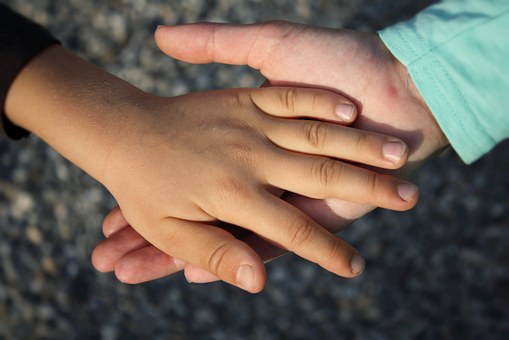The Bank Account
What a nice way to remind one you get out of life what you put into it
and remind us all of how lucky we really are.
BANK ACCOUNT!!!
This is AWESOME … something we should all remember.
A 92-year-old, petite, well-poised and proud man, who is fully dressed each morning by eight o’clock, with his hair fashionably combed and shaved perfectly, even though he is legally blind, moved to a nursing home today.
His wife of 70 years recently passed away, making the move necessary. After many hours of waiting patiently in the lobby of the nursing home, he smiled sweetly when told his room was ready. As he maneuvered his walker to the elevator, I provided a visual description of his tiny room, including the eyelet sheets that had been hung on his window.
I love it,’ he stated with the enthusiasm of an eight-year-old having just
been presented with a new puppy.
Mr. Jones, you haven’t seen the room; just wait….’
‘That doesn’t have anything to do with it,’ he replied. Happiness is something you decide on ahead of time. Whether I like my room or not doesn’t depend on how the furniture is arranged… it’s how I arrange my mind. I already decided to love it.
‘It’s a decision I make every morning when I wake up. I have a choice;
I can spend the day in bed recounting the difficulty I have with the parts
of my body that no longer work, or get out of bed and be thankful for the ones that do.
Each day is a gift, and as long as my eyes open, I’ll focus on the new day and all the happy memories I’ve stored away.. Just for this time in my life..
Old age is like a bank account. You withdraw from what you’ve put in.
So, my advice to you would be to deposit a lot of happiness in the bank account
of memories!
Thank you for your part in filling my Memory Bank. I am still depositing.
‘Remember the five simple rules to be happy:
1. Free your heart from hatred.
2. Free your mind from worries.
3. Live simply.
4. Give more.
5. Expect less.
““““““““““““““““““““““““““““““““““““““““““““““
Happiness in helping others
500 balloons story
Once a group of 500 people were attending a seminar. Suddenly the speaker stopped and decided to do a group activity. He started giving each person a balloon. Each person was then asked to write their name on it using a marker pen. Then all the balloons were collected and put in another room. The people were then let into that room and asked to find the balloon which had their name written on it within 5 minutes. Everyone was frantically searching for their name, colliding with each other, pushing around others and there was utter chaos.
At the end of 5 minutes no one could find their own balloon. Then, the speaker asked each person to randomly collect a balloon and give it to the person whose name was written on it. Within minutes everyone had their own balloon.
The speaker then began, “This is happening in our lives. Everyone is frantically looking for happiness all around, not knowing where it is. Our happiness lies in the happiness of other people. Give them their happiness; you will get your own happiness. And this is the purpose of human life…the pursuit of happiness.”
-by Allan Luks
Allan Luks, former executive director of the Institute for the Advancement of Health and executive director of Big Brothers/Big Sisters of New York City, has studied kindness and the clear cause-and-effect relationship between helping and good health.
Some of the most significant findings of his research include the following:
- Helping others contributes to the maintenance of good health and can diminish the effect of minor and serious psychological and physical diseases and disorders.
- The rush of euphoria often referred to as a “helper’s high” after performing a kind act involves physical sensations and the release of the body’s natural painkillers, the endorphins. The initial rush is followed by a longer period of calm and improved emotional well-being.
3 .The health benefits and sense of well-being return for hours or even days whenever the helping act is remembered.
4.Stress related health problems improve after performing kind acts. Helping others:
- Supplies social contact.
- Reverses feelings of depression
- Reduces feelings of hostility and isolation that can cause stress,overeating, ulcers, etc.
- Decreases the constriction in the lungs that leads to asthma attacks
- Helping can enhance feelings of joyfulness, emotional resilience, and vigor, and can reduce theunhealthy senseof isolation.
- The awareness and intensity of physical pain can decrease.
- Attitudes such as chronic hostility that negatively arouse and damage the body are reduced.
- A sense of self-worth, greater happiness, and optimism is increased, and feelings of helplessnessand depression decrease.
- When we establish an “affiliative connection” with someone (a relationship of friendship, love, or somesort of positive bonding), we feel emotions that can strengthen the immune system.
- Caring for strangers leads to immense immune and healing benefits.
- Regular club attendance, volunteering, entertaining, or faith group attendance is the happiness equivalent of getting a college degree, or more than doubling your income. Book on Health and Spiritual Benefits of Helping Others
Source: InterNet.
Credit : To the person or organization who created this Article and published on the InterNet.
Above Article: For Education and Entertainment purpose only.









